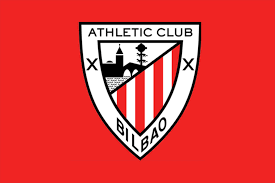The Athletic Club is more than just a football team; it embodies a rich history, a unique cultural identity, and an unyielding commitment to sporting excellence. Rooted in the heart of Bilbao, Spain, this legendary club has cultivated a passionate fanbase and a renowned reputation for cultivating local talent and playing an attractive, attacking style of football. In this comprehensive article, we will explore the various facets of the Athletic Club, including its history, philosophy, notable achievements, and its cultural significance within Basque society. Whether you’re a dedicated supporter or simply interested in understanding what makes this club so special, this detailed exploration will provide insights beyond mere statistics socolive.
The History and Origins of Athletic Club
Understanding the roots of the Athletic Club offers invaluable context for appreciating its enduring legacy. Established over a century ago, the club’s origins are deeply intertwined with the social and political landscape of the Basque Country. From its humble beginnings in a working-class city to becoming one of the most respected clubs in Spain, Athletic Club’s journey is marked by resilience, community spirit, and a pioneering approach to football.
Early Years and Founding Principles
The Athletic Club was founded in 1898, making it one of the oldest football clubs in Spain. The club was initially formed by a group of young enthusiasts, many of whom were students returning from Britain, where they had been introduced to football. Their shared passion for the sport led to the establishment of the club as a means not only of athletic pursuit but also of fostering regional pride.
The founding principles centered on promoting local talent—an ethos that remains central to the club’s identity today. From its inception, Athletic Club prioritized nurturing players from the Basque region, emphasizing their cultural connection and social responsibility. This focus on local talent was a strategic decision that distinguished the club from others that relied heavily on imported players.
Development Through the 20th Century
As football grew in popularity across Europe, Athletic Club expanded its influence and stature. During the early 20th century, the club achieved significant success domestically, winning numerous regional titles and establishing dominance in Basque football. The 1920s saw the club win its first Copa del Rey, setting the stage for future triumphs.
Throughout the tumultuous periods of Spanish history, including the Civil War and dictatorship, Athletic Club remained a symbol of regional pride and resilience. Its commitment to Basque identity persisted despite political pressures, often serving as a rallying point for cultural expression and resistance.
Major Milestones and Key Achievements
- Winning the La Liga title nine times, with notable victories spanning from the 1930s to the early 1980s.
- Securing multiple Copa del Rey trophies, cementing its status as a domestic powerhouse.
- Establishing the Basque-only policy—a tradition of fielding only Basque players—which became a distinctive feature of the club’s philosophy.
- Building the iconic San Mamés Stadium, known as “The Cathedral,” which symbolizes the spiritual home of Athletic fans.


